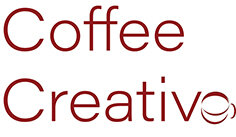Journalism doesn’t change the world
I heard today of some students that dropped out of journalism because they couldn’t see how the profession would change the world.
Their expectation is not unique. I’ve heard it before. However, the idea that journalism should change the world is as optimistic as it is arrogant.
The trouble is, it presumes that it’s not enough to hold a mirror up to the world and let the world see itself, that somehow journalists should put down the mirror and take a palette knife to the image of the world to transformation the world somehow to mould it. It ignores the fact that if journalism were to mould the image of the world, journalists would first need to know in what images should it be moulded?
In holding up a mirror to the world, we give readers, viewers, listeners the opportunity to consider what might be.
Sometimes, in holding up a mirror to the world we show the trivial and apparently unimportant, sometimes, even in those trivial things, we reflect to the world its own sadness, its faults and its absurdities together with its joy, triumphs and wonder.
A journalist finds the who, what, where, why, when and how of the world, polishes them to make them clearly recognised and lets them tell their own story.
This is the privilege of journalism, the chance to access all those places that provide the who, what, where, why, when and how. In going to those places, finding those things, I shed a light on those things that would not otherwise be seen. That doesn’t set out to change them, it provides the flash paper, the catalyst for change. So, journalism, is not the change maker but the knowledge provider. That knowledge allows change to occur.
If that means you believe that well-constructed journalism is without power or privilege, then that is the mistake you make. If those that want journalism to focus on the big world changing picture find journalism disappointing, it’s because they fail to understand the power of the small, the individual’s story.
I have never written or filmed a story that talks about the millions of refugees worldwide who find themselves displaced and homeless. That’s because the first thing I must know is who and ‘millions of refugees’ is not a name. The tears of one child with a name have more power, more influence and hold up a clearer mirror.
Among the hundreds of stories that I have written, I remember the story of one little autistic girl called pixie – primary schooler – who told me how the world hurt her sometimes. One little girl, with a name stays in my memory. She held up her own mirror and the image that was reflected was beautiful and tragic and lasting.
I filmed an interview with a family who had previously never spoken about the murder of one son and the suicide of another. They spoke for six hours in a way that they had never spoken before. Journalism provided me with the access and gave them the opportunity to speak, to let out their grief. For a variety of reasons, the interview might never be broadcast. In a way, it doesn’t matter. That’s journalism. It allowed a voice to speak and the audience that heard it were those that mattered the most – the rest of the family. In allowing that family to speak, the world changed that day. Not for me or for you, or for the thousands who lose loved ones to murder but for one family. It was an audience of three and all the audience that was needed. I didn’t change them, they did.
As a journalist, I have had big moments and great privileges that few others get to experience. I have talked to world leaders, and former terrorists, authors by the truckload, some sports people and looked into the lives of the rich and famous. I have ridden a zip-line over the rainforest, hung out the door of helicopters, sailed the world’s largest reef, met, laughed and cried with the great and the poor.
But journalism isn’t about those times. And no, journalists don’t change the world. Journalism is about shining a light on the who, what, where, when, why and how, illuminating them, no matter how small and showing them as they are, so that those simple words will find their own voice and, perhaps that’s what changes the world – the collection of little, previously unheard voices that, through you, can be heard and the many faces that can be seen.

